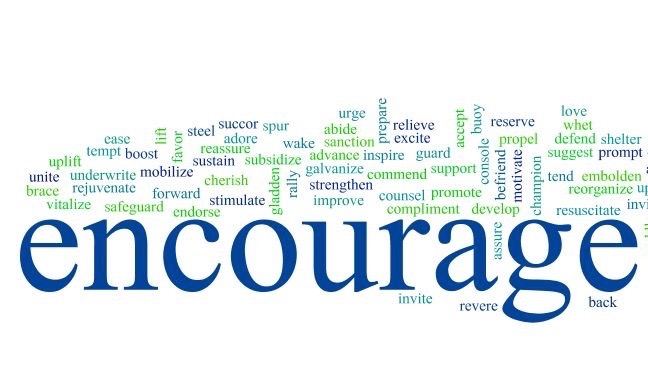
How do you know someone needs encouragement? They are breathing. – S. Truett Cathy
A young boy, on an errand for his mother, had just bought a dozen eggs. Walking out of the store, he tripped and dropped the sack. All the eggs broke, and the sidewalk was a mess. The boy tried not to cry.
A few people gathered to see if he was okay and to tell him how sorry they were. In the midst of the words of pity, one man handed the boy a quarter.
Then he turned to the group and said, “I care twenty-five cents worth. How much do the rest of you care?”.
In many ways, encouragement is the lifeblood of leadership. So long as you are around a person who’s breathing they need encouragement.
While it may not be hard to imagine what your organizational culture would be like without encouragement taking place, imagine what the possibilities would be like if it were? The challenge in leadership as it relates to encouragement is to be as generous as possible.
Encouragement is the lifeblood of any organization. Here are a few reasons why you need to pass it along.
Encouragement can be a game-changer
A word of encouragement given at the right time can make the difference between success and failure for the person receiving it. And in some cases, it’s not so much the uplifting word spoken that made the difference, but the timing of it that turned things around.A word of encouragement given at the right time can make the difference between success and failure for the person receiving it. Click To Tweet
It’s been said that everyone is facing struggles we know nothing about. You never know how your word of encouragement can give a person that extra dose of confidence to continue on and not give up. Never underestimate the power of a kind word.
Encouragement is a unifier
Just as gossip and office politics tends to divide, encouragement sets the bar at a higher level. Encouragement tends to bring people together in a way that destructive words never will. Your organization will grow stronger and healthier when words of encouragement are at the center of your conversations.
If you are looking for ways to bring your people together, look first at the way in which you communicate with your people. Click To TweetBringing your people together begins with words of encouragement. So long as your people know you have their backs it makes every other conversation better.
Encouragement builds relationships
One of the benefits of encouragement is that it builds bonds between you and your people. It’s easy to come together over words of encouragement, but the relationships that emerge from it are where you can really make improvements. This is where you can take your people to a higher level and out of their comfort zones.
Developing relationships takes time and commitment. It begins with the power of your words. Encouragement for the sake of encouragement is always good. But at some point, you want to take your people to a higher level. Encouragement sets the table to do so.
Final Thoughts
If there’s ever been a time for encouragement in the workplace it’s now. Many of your colleagues and friends are hungry for an encouraging word of support. Be the voice of hope. Be the voice of understanding. Be the voice of encouragement that others need.
Who have you encouraged today?
©2020 Doug Dickerson










